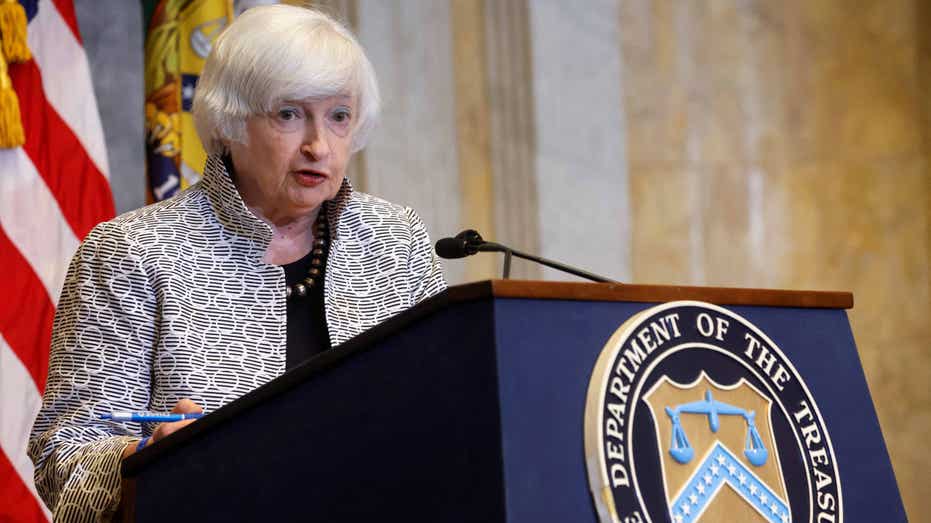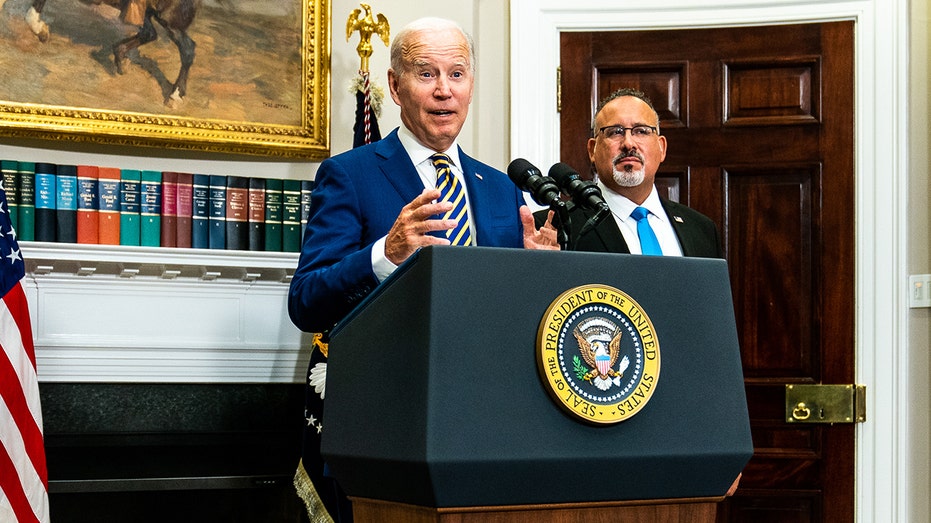Biden on pace for $1 trillion budget deficit in 2023: $2.7 billion in new debt per day
Senate ‘kicking the can down the road’ on national debt: Sen Mike Braun
Sen. Mike Braun, R-Ind., weighs in on a potential government shutdown as senators race to pass stopgap spending bill.
The federal government added $83 billion to the national debt in the first month of fiscal year 2023, according to the Congressional Budget Office (CBO), a rate of $2.7 billion in new debt per day that puts the government on track for another $1 trillion deficit this year.
While the new debt racked up in October is substantial, it is much lower than borrowing levels seen over the last few years during COVID. The $83 billion is half the size of the borrowing seen in October 2021 and reflects the winding down of emergency spending that was approved to deal with the pandemic.
Only seven of the last 25 months have resulted in deficits under $100 billion or with a budget surplus, and nine of those months saw deficits above $200 billion.
BIDEN'S STUDENT LOAN HANDOUT COST $426 BILLION, BOOSTED 2022 BUDGET DEFICIT TO $1.4 TRILLION: CBO
President Biden’s government is still spending at high levels even as emergency COVID spending has dropped off. ((Saul Young/Knoxville News Sentinel via AP, Pool) / AP Newsroom) The CBO’s report on October numbers also reviewed fiscal year 2022 and noted that areas of the government that dealt directly with COVID spent about $1.3 trillion less in 2022 than they did in 2021. For example, the government spent $486 billion less on refundable tax credits in 2022, $375 billion less on unemployment compensation, $300 billion less on small business loans and $138 billion less on relief to state, local and tribal governments. However, some spending increased, most notably at the Department of Education. That department booked nearly $400 billion in more expenses in order to pay for President Biden’s student loan handout. EPA WANTS YOUR HELP SPENDING $13B ON ‘ENVIRONMENTAL JUSTICE,’ CLIMATE CRISIS Treasury Secretary Janet Yellen is borrowing billions each day to meet federal spending priorities. (REUTERS/Jonathan Ernst / Reuters Photos) Net interest on the national debt also jumped more than $100 billion, as rising interest rates added to the government’s borrowing costs. The government spent $534 billion to serve the debt in FY2022, and budget watchers say that number is likely to soar higher. Biden has boasted about his ability to reduce the budget deficit, which is the amount the government borrows each year to cover its spending. The budget deficit in 2022 fell to $1.4 trillion from $2.8 trillion in 2021. However, budget hawks note that spending is still well above levels seen before the pandemic, and that interest payments on the debt by themselves could soon become a $1 trillion annual expense. "The debt is projected to continue to climb as we head for another year of a $1 trillion deficit," said Maya MacGuineas, president of the Committee for a Responsible Federal Budget. "And that is assuming Congress doesn’t make things even worse." MORE SPENDING: CONGRESS FACES MULTIBILLION-DOLLAR MEDICARE FIX WHEN IT RETURNS AFTER MIDTERMS President Biden delivers remarks regarding student loan debt forgiveness in the Roosevelt Room of the White House. (Demetrius Freeman/The Washington Post via Getty Images / Getty Images) Some additional spending is on the immediate horizon. For example, Congress is widely expected to spend tens of billions of dollars to prop up Medicare before Jan. 1, 2023, after which reimbursements to Medicare doctors will fall and severely limit health care choices for seniors. MacGuineas said Congress needs an "emergency action plan" that first holds the line on new borrowing for the rest of 2022, and then takes steps to reduce the $31 trillion national debt. CLICK HERE TO ADD THE FOX BUSINESS APP The government is very close to bumping up against the debt ceiling, which is just short of $31.4 trillion. When that level of borrowing is hit, the government will enact what it calls "extraordinary measures" to limit borrowing and stay under the ceiling. Republicans have hinted at an interest in cutting spending as part of a deal to raise the debt ceiling if they take control of the House and/or Senate in today’s midterm elections. Source: Read Full Article



